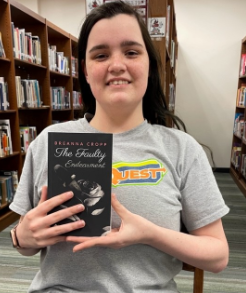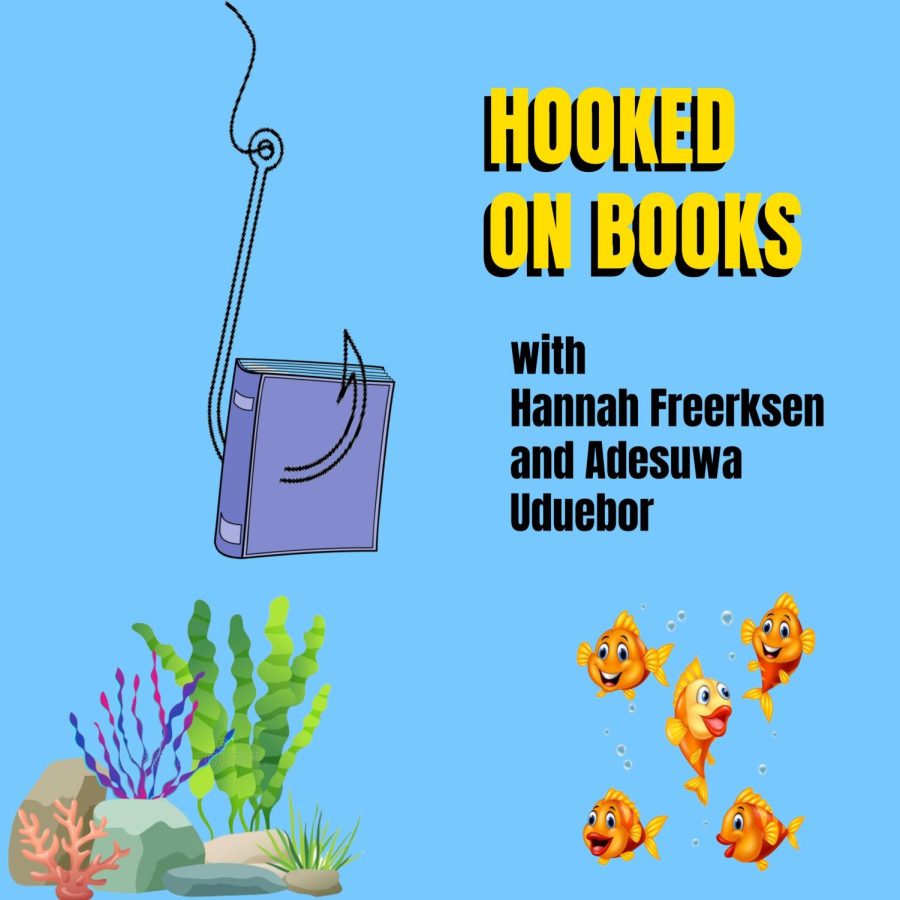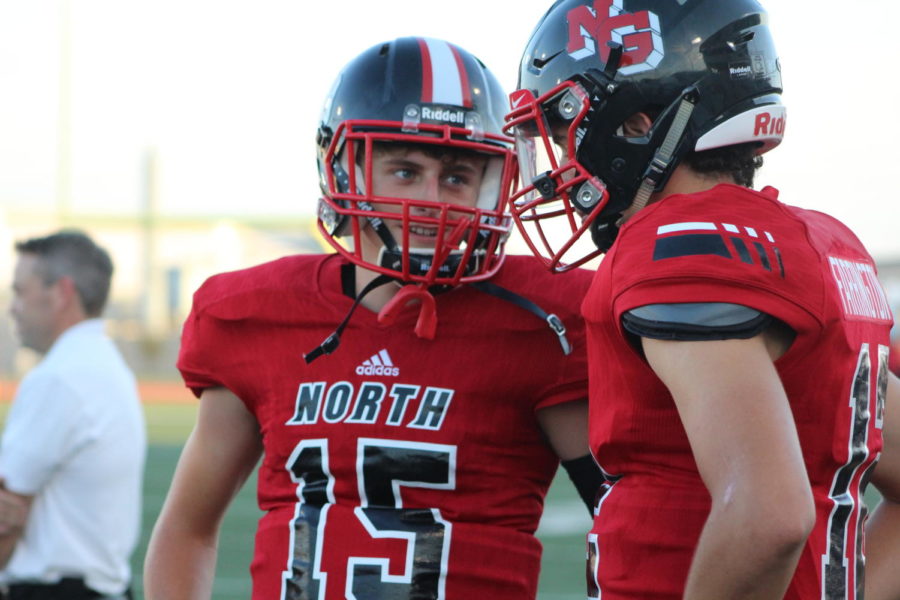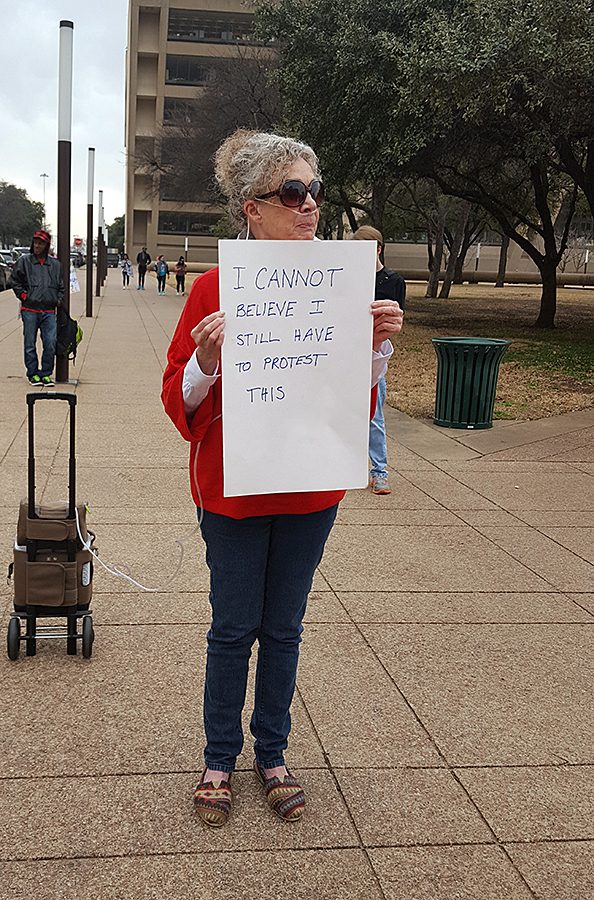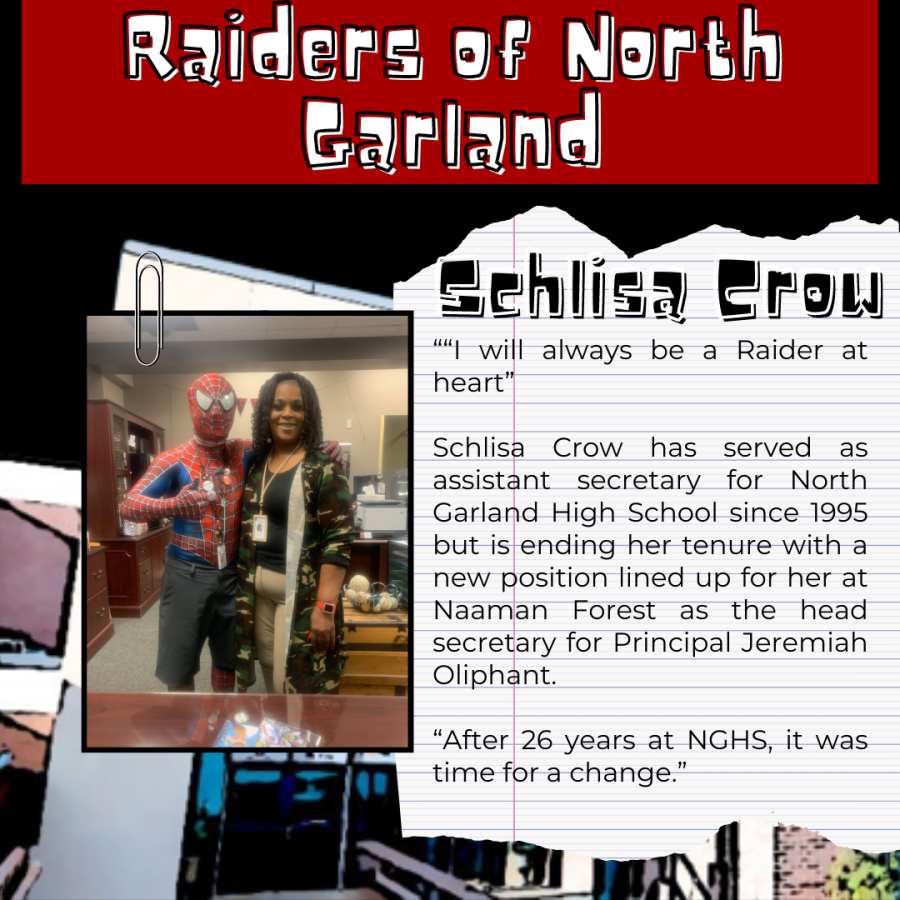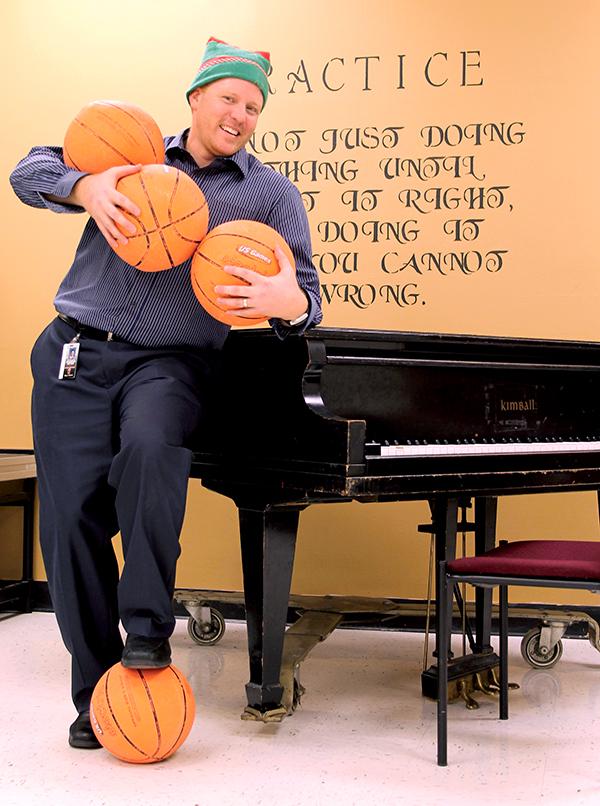A visit from Christmas past
The lights on the Christmas tree shone brightly and added a warm and joyful hue to the living room, as his two little boys sat excitedly around the presents surrounding the tree and waited for the okay from him and his wife to begin opening them all. As he watched their little faces glow with excitement as the presents’ wrapping paper was quickly torn to shreds, choir director Brandon Ritter thought back to his own childhood Christmas, and all the varieties of experiences and ideas that make Christmas, Christmas.
Ritter said he remembers spending his childhood Christmases in Iowa with his extended family. This included an annual meal of oyster stew, followed by a long and strenuous family clean-up, a book reading of whichever Christmas story was on rotation that year and finally, family gift opening.
“The one thing I [liked most] about going to Iowa every year was that they usually had snow,” Ritter said. “So we’d get to play out in the snow, which is something that we don’t get to do here ever. When we’d go to visit, we could build a life-size snowman like you would see in a cartoon, and there were some years when we got to go sledding in the snow, and things like that. So, just getting to play in the snow was probably the best part.”
In his own family now, Ritter said he and his wife make a point of emphasizing the story of Christ’s birth throughout the weeks leading up to Christmas. He said they do this through decorative and toy nativity scenes, a Christian advent calendar with a few Bible stories in it and specified family Bible study of the Christmas story during the week of Christmas.
“I hope [the emphasis on Christ] influences the way [my kids] see Christmas,” Ritter said. “I mean, I think it had an effect on me growing up, so I hope my boys have that same understanding as they mature as well – that [Christmas] is more than just the materialistic getting Christmas presents – that it’s the thought of giving, because we received the largest gift possible.”
Ritter said his family traditions and celebrations are largely influenced by his family placing a high priority on church. He said individual family style and type has a big impact on how everyone celebrates Christmas today; families who are strongly Christian will likely make the story of Christ’s birth a focal point during Christmas, while families of different faiths or families who are not religious at all, will only celebrate Christmas as another holiday, with Santa and reindeer and materialistic presents. However, he does not believe this is a big change from past years and generations.
“I think that ever since commercialism was invented and people realized they could sell stuff for profit, Christmas has always been a big money making time of year, between presents, lights and all the stuff that comes with them,” Ritter said. “But as a whole, I don’t think society is necessarily any further away from the true Christmas story.”
He said he has noticed a few slight changes in decorations used over the years, such as the growing popularity of yard inflatables that were not even available much in his childhood. He also noticed the earlier availability of Christmas decorations in stores in more recent years. However, the most prevalent change he said he has noticed is the diminishing amount of people who participate in outside house lighting and decorations.
“It used to be, when you would go out to look at Christmas lights, there would be entire neighborhoods that would get on board, so literally every home would be lit up, and if there was a house that wasn’t lit, it was odd to see,” Ritter said. “Now when we take our children out to see Christmas lights, we’re lucky if any street has six, or even four or five, houses with lights. We have had to go to really affluent neighborhoods like Highland Park, where you’ve got these ridiculous mansions, if we just want a really nice, lit up street.”
But decorations are not the main principle Ritter is concerned with when it comes to Christmas. He believes gift-giving is still important, because it mirrors the most important gift given, which Ritter said is God’s gift of His son, Jesus Christ. Ritter said the lack of emphasis on this gift is evident in the popular holiday songs about Santa and winter time, rather than classic Christmas carols or songs about Christ.
“The most important part [of Christmas] is knowing why we even call it Christmas and the reason why Christ even came,” Ritter said. “Because [God] sent His son to the Earth for us, so we’re not all doomed to die and go to Hell and just be separated from Him forever. Without Christ, we wouldn’t even have the chance for salvation.”
Ritter believes Christmas takes on a new meaning as people get older and come to understand the reasons behind the celebration, along with the appreciation they gain for those who go out of their way to get them a special present each year.
“I prefer Christmas a lot more now,” Ritter said. “Being on the other side where there’s really nothing I need – and I recognize that – and there are very few things that I even want, it’s a lot more fun seeing the reaction of somebody else receiving a gift, or just your time. Because as I get older, I realize that as long as I have good health, and my children are healthy, and we have a house, and we have a means to eat and a means to get to and from work, plus the blessing of having a job to pay for all those things we need, plus the things that we like to splurge upon, I’m fine. Seeing the response is just so much more rewarding than any gift I ever opened up as a child.”


